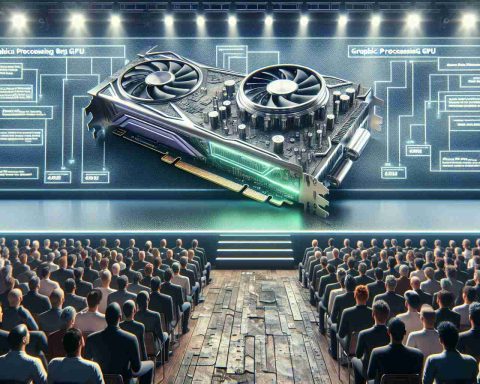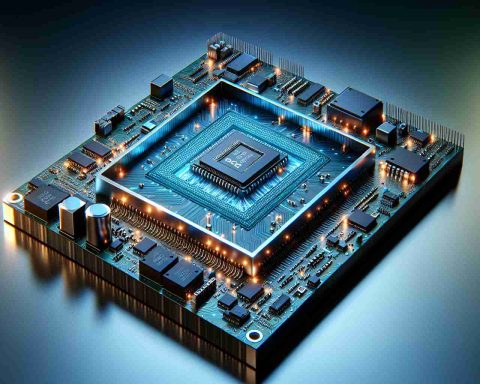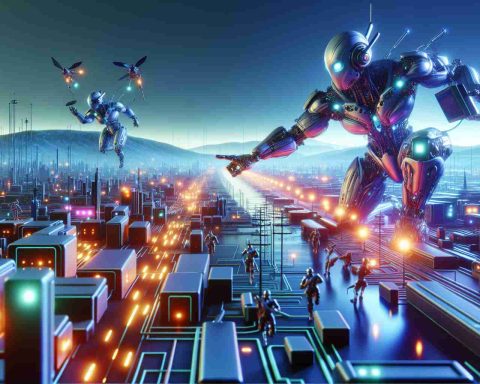The tech world buzzed recently as Elon Musk, CEO of SpaceX and Tesla, discussed pressing issues and future developments. Highlighting the ongoing chip shortages, a problem affecting various industries worldwide, Musk engaged in a compelling conversation with C.C. Wei, Chairman of Taiwan Semiconductor Manufacturing Company (TSMC).
Musk underscored the significance of this challenge, emphasizing its potential impact on technological progress. He stressed that overcoming these shortages is crucial for the relentless advancement of sectors like autonomous vehicles and consumer electronics.
In addition to discussing current hurdles, Musk painted an exciting picture of the future, heralding the transformative potential of drones and multifunctional robots. These innovations, according to Musk, could redefine industries by increasing efficiency and introducing new capabilities.
Taiwan is at the forefront of addressing these challenges, with at least 10 initiatives driven by its academic sector to enhance and innovate in semiconductor manufacturing. These projects aim to tackle the global chip crisis while pushing the boundaries of what these technologies can achieve.
The conversation highlighted the pivotal role that technology leaders and nations play in shaping the future. It is a thrilling era where collaborative efforts between corporate and academic entities will fuel monumental advancements, steering us towards a tech-driven future.
Musk’s insights serve as a reminder of how closely intertwined global cooperation and technological innovation have become, setting the stage for remarkable changes on the horizon.
Elon Musk’s Vision: Navigating Chip Shortages and Future Tech Innovations
In a recent high-profile dialogue on technological challenges and future advancements, Elon Musk, CEO of SpaceX and Tesla, shed light on pressing global issues such as chip shortages and the rise of multifunctional robotics. This conversation underscores the pivotal role of global cooperation in driving technological breakthroughs.
Chip Shortages: A Global Hurdle
The ongoing chip shortage remains a significant obstacle for industries, from autonomous vehicles to consumer electronics. Musk’s discussion with C.C. Wei, Chairman of Taiwan Semiconductor Manufacturing Company (TSMC), highlighted the critical nature of this shortage. Both leaders agreed that resolving this issue is essential for sustained technological progress. TSMC is leading efforts to mitigate these shortages with at least 10 initiatives from Taiwan’s academic sector focusing on semiconductor manufacturing innovations.
The Future of Drones and Robots
Elon Musk is enthusiastic about the revolutionary potential of drones and multifunctional robots. These technologies promise to redefine efficiency and capabilities across various sectors. Drones could enhance logistics and emergency services, while robots might transform manufacturing and daily life by integrating seamlessly into various routines.
Collaborative Efforts: The Key to Tech-Driven Progress
The dialogue serves as a reminder of the interconnected nature of technology and global cooperation. It highlights the need for collaborative efforts between corporate entities like Tesla and academic institutions, particularly in leading tech hubs like Taiwan. This partnership approach is vital for overcoming current challenges and achieving monumental advancements in technology.
Predictions and Innovations
Musk’s vision extends beyond current challenges, predicting a future where technology shapes every facet of life. With significant investments in research and development, companies are expected to spearhead innovations that may change global industries. These innovations will likely focus on sustainability and efficiency, steering the world toward a more tech-driven and environmentally conscious future.
The Path Forward
As industries prepare for these transformative changes, the need to address chip shortages becomes more urgent. Taiwan’s initiatives offer hope, but global cooperation remains key. The insights shared by tech leaders like Musk and Wei serve not only as a guide for tackling present obstacles but also as a beacon for future innovation.
In conclusion, as we stand on the brink of significant technological evolution, the importance of cross-border cooperation and investment in cutting-edge research cannot be overstated. The tech-driven world of tomorrow will depend heavily on the actions taken today.



















